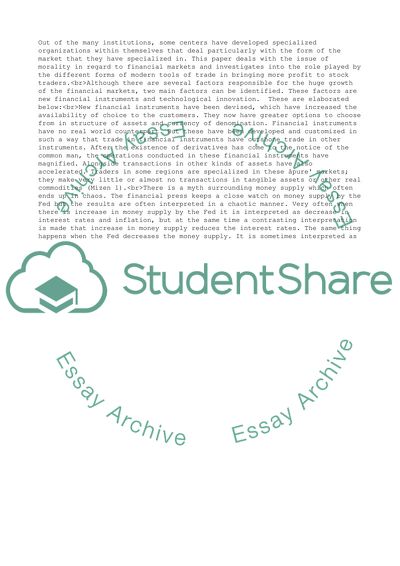Cite this document
(Morality of Publicly Traded Markets Term Paper Example | Topics and Well Written Essays - 4500 words, n.d.)
Morality of Publicly Traded Markets Term Paper Example | Topics and Well Written Essays - 4500 words. https://studentshare.org/finance-accounting/1795436-morality-of-publicly-traded-markets
Morality of Publicly Traded Markets Term Paper Example | Topics and Well Written Essays - 4500 words. https://studentshare.org/finance-accounting/1795436-morality-of-publicly-traded-markets
(Morality of Publicly Traded Markets Term Paper Example | Topics and Well Written Essays - 4500 Words)
Morality of Publicly Traded Markets Term Paper Example | Topics and Well Written Essays - 4500 Words. https://studentshare.org/finance-accounting/1795436-morality-of-publicly-traded-markets.
Morality of Publicly Traded Markets Term Paper Example | Topics and Well Written Essays - 4500 Words. https://studentshare.org/finance-accounting/1795436-morality-of-publicly-traded-markets.
“Morality of Publicly Traded Markets Term Paper Example | Topics and Well Written Essays - 4500 Words”. https://studentshare.org/finance-accounting/1795436-morality-of-publicly-traded-markets.


